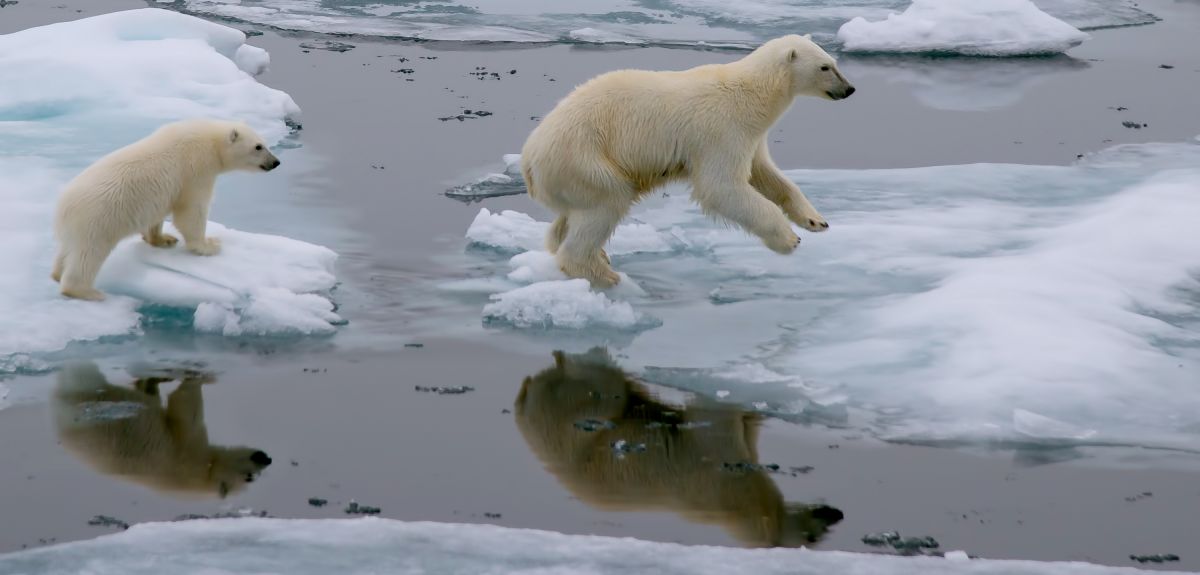
Climate disputes have little effect on the public, says study
Researchers have tracked how media coverage can affect levels of public interest in climate science by comparing volumes of searches for climate change issues on Google's search engine.
They analysed data available on Google Trends between 2004 and 2013, looking in particular at the period around 'climategate' and the discovery of an error in the IPCC Fourth Assessment Report on the melting of Himalayan glaciers.
The study by the University of Oxford and Princeton University found that while intense international media coverage led to spikes in public interest, the number of search terms related to the topic fell back to earlier levels after just a matter of days. The researchers also looked for search terms indicating climate change scepticism and found no long-term change following the two news events. The findings are published in the journal Environmental Research Letters.
Relative search volumes for a number of terms, including 'global warming hoax' and 'climategate', were compared between 15 November 2009 and 15 March 2010. During this period, the two climate science stories had received intense media coverage across the globe. First, in November 2009, emails were hacked from the accounts of climate scientists from the University of East Anglia and used to accuse the scientists of misconduct, dubbed by the media as 'climategate'. The scientists were cleared following numerous inquiries by independent commissions. Then shortly after 'climategate', in January 2010, the news broke about an error in the rate of the Himalayan ice melt in the IPCC report.
The researchers found that the use of the search term 'climategate' halved six days after a peak in the public interest around the story of the email hacking incident at the University of East Anglia. There was no evidence for an increase in the number of searches for 'global warming hoax', a search term that was associated with climate change scepticism, following the email hacking incident. Even when the number of searches for 'Himalayan glaciers' had reached its peak during the discovery of the error, the researchers found no clear increase in relative search volume for 'global warming hoax'.
The study points out that an analysis of relative search volumes is not proof of people's beliefs on climate change. It does argue, however, that this approach provides a new and independent approach to understanding levels of public interest in climate change, including climate change scepticism.
Co-author Dr Greg Goldsmith, from the School of Geography and the Environment at the University of Oxford, said: 'The study uses the search term "global warming hoax" as an indicator of global warming scepticism amongst the public. Although we found an increase in the volume of searches for the term immediately after the news of the hacking of the emails from the Climate Research Unit at the University of East Anglia, the search volume quickly returns to the same level as before the incident. This suggests no long-term change in the level of climate change scepticism.
'We found that intense media coverage of an event such as "climategate" was followed by bursts of public interest, but these bursts were short-lived.'
Their analysis of relative search term volumes across time and different parts of the world shows that interest in climate change has significantly declined since a peak in 2007. The search term 'global warming' was most used by those visiting Google Trends for information on climate change. The study suggests that being able to pinpoint the language people use to search for information could help those involved in climate change communications.
Dr William Anderegg from Princeton University said: 'Our results showed that the volume of these search terms peaked in 2007 around a unique sequence of major events – the releases of Al Gore's An Inconvenient Truth in August 2006 and the IPCC Fourth Assessment Report in April 2007 – and the level of interest has declined since then. There is no single reason why the public have become less interested in climate change. However, research certainly suggests that economic issues, such as the recent recession, tend to take precedence over environmental issues like climate change.'
 Expert Comment: The war in the Gulf
Expert Comment: The war in the Gulf
 International Advisory Board to strengthen global leadership in primary care
International Advisory Board to strengthen global leadership in primary care
 Expert Comment: Church-to-mosque conversions grab headlines, but is funding the real crisis?
Expert Comment: Church-to-mosque conversions grab headlines, but is funding the real crisis?